PORTRAITS: Economic development work forged on a reliance of networks
Economic development work doesn’t happen overnight and Waseca Economic Development Coordinator Gary Sandholm does a lot of work behind the scenes with a variety of organizations.
Some of that work means contact with the Department of Employment and Economic Development to see what businesses might be looking for a spot that will fit in Waseca. Other times it means working with organizations like the Community Venture Network where companies can pitch to communities. Waseca shares a partnership with Fairmont and Mountain Lake in the Community Venture Network, which extends into eight states. Sometimes businesses can be attracted through word of mouth.
Sandholm can help businesses already in the area and with startups navigate through the process.
“If a business is looking to expand, there is where we can use DEED,” Sandholm said.
Organizations like the Region Nine Development Commission and Southern Minnesota Initiative Foundation have funding available for entrepreneurs. The Waseca EDA can also provide loans for businesses.
Then there is the Small Business Development Center in Mankato where entrepreneurs can get advice and learn how to write business plans. SCORE is another group that will provide mentoring for those seeking to start a business.
Since joining the city of Waseca four years ago, Sandholm has worked to fill the void left after the Quad Graphics closing left nearly 400 people out of work. The city received around a $600,000 grant from the U.S. Economic Development Authority that will go toward finding a person to reach out to businesses.
“The purpose that this person will try to fill is the outreach to industries and businesses on a wider scale than what we’re able to do for one person,” Sandholm said. “More outward than local businesses.”
Part of that grant money is being used to do a viability study of an area manufacturing resource center, which Region Nine will do.
Some businesses have started to fill the building Quad Graphics occupied. Midwest Hemp Farms, Rhino Markers and Green Forest Recycling have moved into the building.
“One of the things we’ve been fortunate about is that the job demand in this region has been very strong,” Sandholm said. “So the people laid off by Quad and Clear Lake Press, have basically been rapidly absorbed into the workforce.”
But the closure has meant fewer workers coming into Waseca.
“Three, four years ago we had a net surplus of people driving into Waseca to work,” Sandholm said. “Far more than drove out. Now that’s flip flopped. We haven’t seen people moving away from Waseca. People are working in Mankato, Owatonna, Austin, Albert Lea. That hurts the local economy because they’re probably not spending as much money locally.”
Sandholm dealt with an Electrolux plant closing in his hometown of Dayton, Iowa where he worked as an economic development coordinator. He worked as the economic development coordinator and Chamber of Commerce director in Hartford, South Dakota before joining the city of Waseca.
He sees the education system in Waseca and the transportation access as selling points to business. Plus, the railway has capacity and there’s utility capacity available. Waseca also has building space available.
“We have a building space surplus,” he said. “We’ve got a lot more building space than we’d like to have right now.”
View the Waseca County News article.

